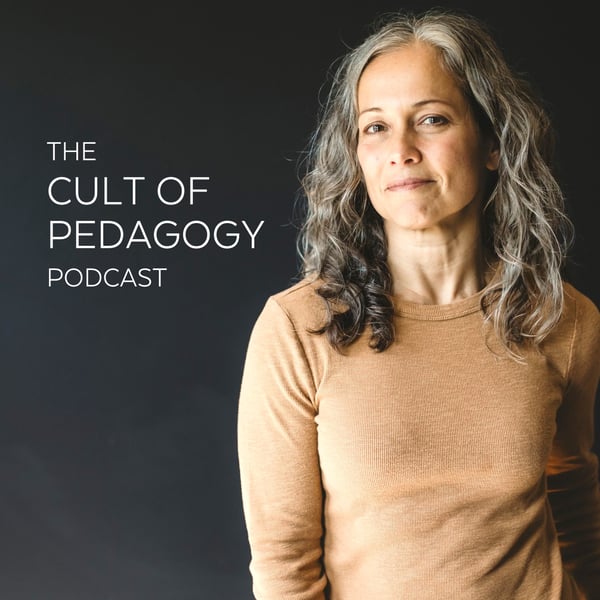249: A Close Look at Competency-Based Learning
The Cult of Pedagogy Podcast
Jennifer Gonzalez
4.8 • 2.4K Ratings
🗓️ 13 April 2025
⏱️ 79 minutes
🧾️ Download transcript
Summary
We talk a lot about differentiating instruction, measuring growth, and preparing students for the real world, but how do you actually do that in a system still driven by grades? Maybe you need a new model altogether. In this episode, we're exploring an approach to school called competency-based learning. I’m joined by three educators — Susie Bell, Heather Messer, and Beth Blankenship — who show us what this model actually looks like in classrooms. They share real teaching examples, how they assess growth over time, and how the Mastery Transcript Consortium supports this work.
Thanks to Zearn and EVERFI for sponsoring this episode.
To read a full transcript of this episode and get more resources on competency-based learning, visit cultofpedagogy.com/competency-based-learning.
Transcript
Click on a timestamp to play from that location
| 0:00.0 | This is Jennifer Gonzalez, welcoming you to episode 249 of the Cult of Pedagogy podcast. |
| 0:05.1 | In this episode, we're going to take a close look at an approach to school called competency-based learning. |
| 0:27.0 | I was giving a presentation recently on differentiation, specifically about tiered assignments, |
| 0:32.7 | a strategy that offers different tiers or levels of challenge, and students only work at the level that matches their current readiness. |
| 0:34.9 | I've always been a fan of this strategy, but during that session, |
| 0:38.1 | someone asked a question that I couldn't answer. How do we grade these fairly? If one student |
| 0:43.9 | is working at a very challenging level and another is working at a much more basic level, |
| 0:48.5 | and they both do well on the assignment, should they get the same grade? That question sent me down a rabbit hole. I posted on |
| 0:56.6 | several different social media platforms about it, got a few answers that kind of sort of addressed |
| 1:01.6 | it, and while I have some idea of how people handle this kind of thing equitably, I never |
| 1:07.7 | quite got a satisfactory answer. The question itself highlighted the limitations |
| 1:13.8 | of traditional grading. A system that has been shown to be problematic by so many people in education |
| 1:20.4 | circles, but still remains as the most common way schools manage and assess student learning. |
| 1:27.1 | Despite not getting that original question answered, |
| 1:30.4 | the search did lead me to something called competency-based learning. Although I was vaguely familiar |
| 1:36.7 | with it, I believed it was in the same ballpark as standards-based learning and mastery learning, |
| 1:41.6 | which we've seen in the modern classrooms approach. |
| 1:44.6 | I had never looked closely at it. So I'm doing that now. I invited three people onto the podcast |
| 1:51.0 | who have a lot of experience and success with this approach. The first is Susie Bell, who is |
| 1:56.4 | executive director of programs at the Mastery Transcript Consortium, an organization that supports |
| 2:02.4 | schools in implementing competency-based learning. The second is Heather Messer, a teacher and |
| 2:08.1 | advisor at a Wisconsin school where competency-based learning is a school-wide practice. |
... |
Transcript will be available on the free plan in 14 days. Upgrade to see the full transcript now.
Disclaimer: The podcast and artwork embedded on this page are from Jennifer Gonzalez, and are the property of its owner and not affiliated with or endorsed by Tapesearch.
Generated transcripts are the property of Jennifer Gonzalez and are distributed freely under the Fair Use doctrine. Transcripts generated by Tapesearch are not guaranteed to be accurate.
Copyright © Tapesearch 2025.

